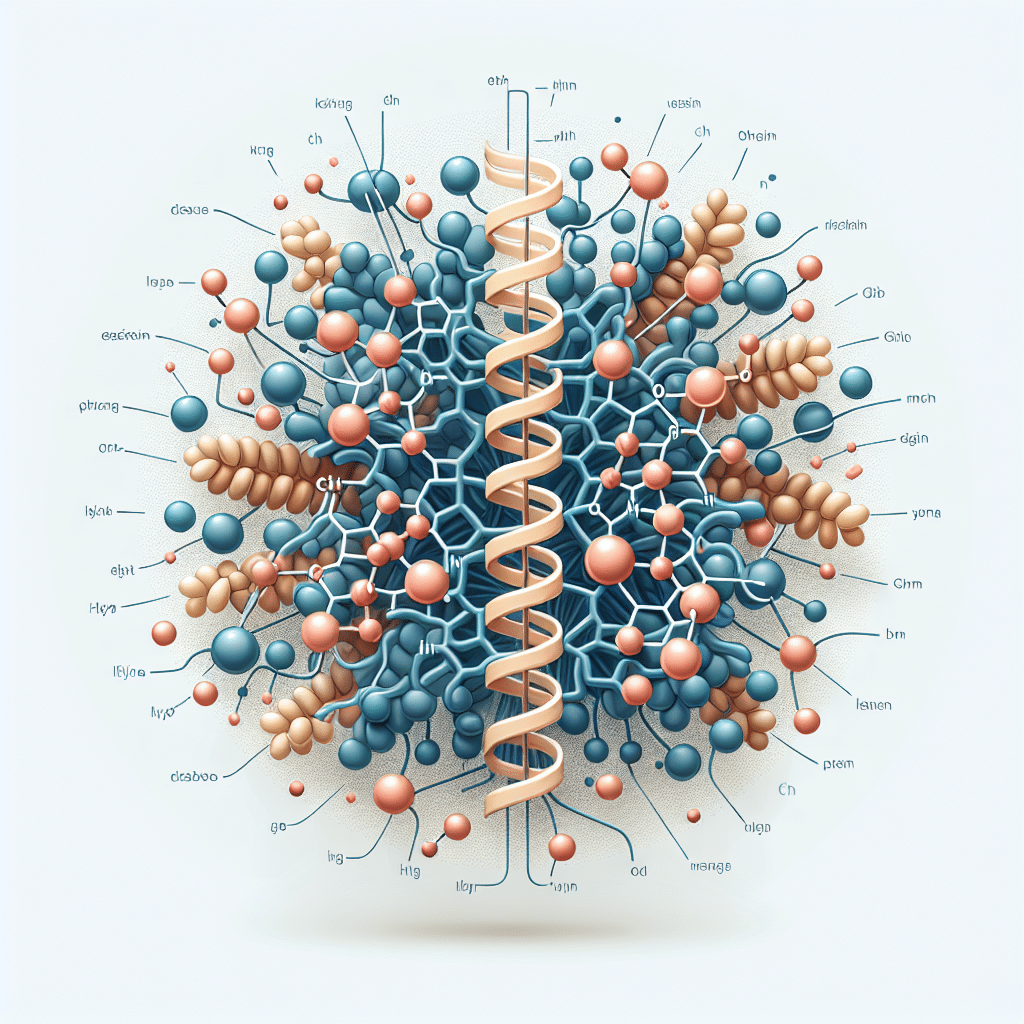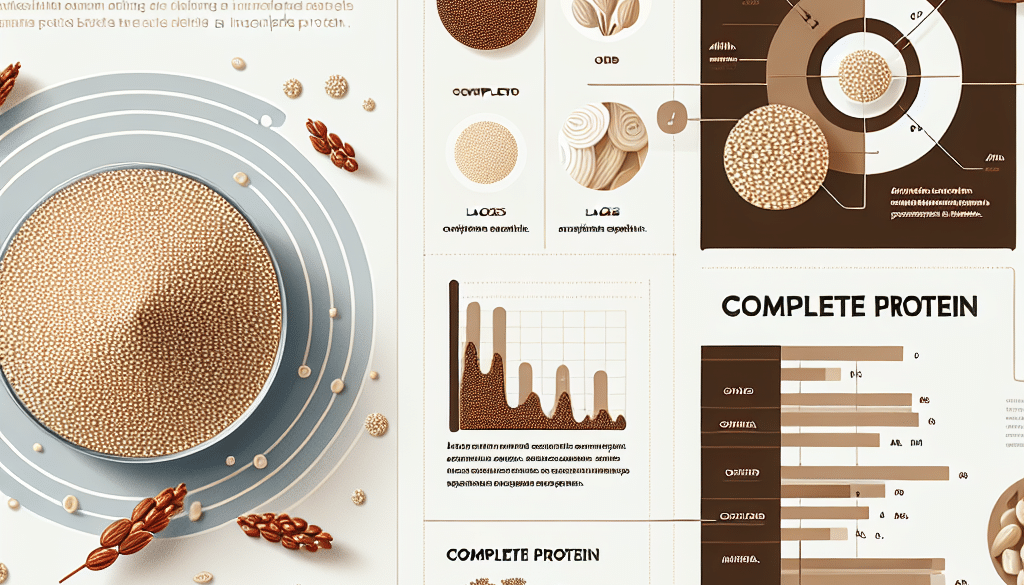Why Is Quinoa An Incomplete Protein?
-
Table of Contents
- Quinoa: A Superfood with Incomplete Protein Profile
- Understanding Protein Completeness
- The Amino Acid Profile of Quinoa
- Comparing Quinoa to Other Protein Sources
- Nutritional Benefits of Quinoa
- Incorporating Quinoa into a Balanced Diet
- Conclusion: The Role of Quinoa in Protein Nutrition
- Enhance Your Protein Intake with ETprotein Products
Quinoa: A Superfood with Incomplete Protein Profile

Quinoa has been hailed as a superfood due to its high nutrient content and is often celebrated for its protein quality. However, there is a common misconception that quinoa is a complete protein source. This article will explore the reasons why quinoa, despite its many health benefits, is considered an incomplete protein and how this impacts dietary choices.
Understanding Protein Completeness
Proteins are made up of amino acids, which are the building blocks of our body’s tissues. There are twenty different amino acids that can form a protein, and nine of these are essential, meaning our body cannot produce them, and they must be obtained through our diet. A complete protein is one that contains all nine essential amino acids in sufficient quantities.
The Amino Acid Profile of Quinoa
Quinoa is often referred to as a complete protein because it contains all nine essential amino acids. However, the term “complete” can be misleading. While quinoa does have all the necessary amino acids, the levels of some, particularly lysine and isoleucine, are not as high as they are in proteins considered to be complete, such as those from animal sources.
- Lysine: Quinoa has less lysine than is ideal, which is crucial for proper growth and tissue repair.
- Isoleucine: This amino acid is important for muscle metabolism and immune function, and quinoa offers it in lower amounts.
Because of this, quinoa cannot be solely relied upon to meet the body’s protein needs, especially for those who have higher requirements or limited dietary choices.
Comparing Quinoa to Other Protein Sources
When compared to other plant-based proteins, quinoa fares well, as many plant proteins are deficient in one or more essential amino acids. However, when compared to animal proteins, which typically contain all essential amino acids in the right proportions, quinoa falls short.
- Animal Proteins: Include meat, dairy, and eggs, and are complete proteins with a high biological value.
- Plant Proteins: Such as beans, lentils, and nuts, often lack one or more essential amino acids but can be combined to form a complete protein profile.
Quinoa is unique among plant proteins because it’s closer to being complete, but it’s not quite there, especially when it comes to lysine and isoleucine.
Nutritional Benefits of Quinoa
Despite not being a complete protein, quinoa is still a nutritional powerhouse. It is high in fiber, vitamins, and minerals, and has a low glycemic index, which is beneficial for blood sugar control. Additionally, quinoa is gluten-free, making it a great option for those with celiac disease or gluten sensitivity.
- Fiber: Quinoa is high in dietary fiber, which aids in digestion and satiety.
- Vitamins and Minerals: It contains iron, magnesium, potassium, phosphorus, and folate, among others.
- Antioxidants: Quinoa has a high content of antioxidants, which help combat oxidative stress in the body.
These attributes make quinoa a valuable addition to any diet, regardless of its incomplete protein status.
Incorporating Quinoa into a Balanced Diet
To make the most of quinoa’s nutritional profile, it should be included as part of a balanced diet that contains a variety of protein sources. Combining quinoa with other plant-based proteins can ensure that all essential amino acids are consumed in sufficient amounts.
- Complementary Proteins: Pair quinoa with beans, lentils, or nuts to create a more complete amino acid profile.
- Diverse Diet: Include a variety of protein sources throughout the day to meet your body’s needs.
- Meal Planning: Use quinoa as a base for salads, soups, and stir-fries, adding other proteins as needed.
By thoughtfully incorporating quinoa into your meals, you can enjoy its health benefits while also ensuring you get all the essential amino acids your body requires.
Conclusion: The Role of Quinoa in Protein Nutrition
Quinoa is a highly nutritious grain that offers numerous health benefits, but it is not a complete protein source. Understanding its amino acid limitations is important for those relying on plant-based proteins to meet their dietary needs. By combining quinoa with other protein sources, one can enjoy its health benefits while ensuring a well-rounded amino acid intake. Ultimately, quinoa can play a valuable role in a diverse and balanced diet.
Enhance Your Protein Intake with ETprotein Products
If you’re looking to supplement your protein intake, consider the high-quality products from ETprotein. Their range of organic bulk vegan proteins, including rice protein, pea protein, and various seed proteins, can help you meet your nutritional requirements. With a commitment to non-GMO, allergen-free ingredients, and high purity levels, ETprotein is a trusted source for all your protein needs.
About ETprotein:
ETprotein, a reputable protein and L-(+)-Ergothioneine (EGT) Chinese factory manufacturer and supplier, is renowned for producing, stocking, exporting, and delivering the highest quality organic bulk vegan proteins and L-(+)-Ergothioneine. They include Organic rice protein, clear rice protein, pea protein, clear pea protein, watermelon seed protein, pumpkin seed protein, sunflower seed protein, mung bean protein, peanut protein, and L-(+)-Ergothioneine EGT Pharmaceutical grade, L-(+)-Ergothioneine EGT food grade, L-(+)-Ergothioneine EGT cosmetic grade, L-(+)-Ergothioneine EGT reference grade and L-(+)-Ergothioneine EGT standard. Their offerings, characterized by a neutral taste, non-GMO, allergen-free attributes, with L-(+)-Ergothioneine purity over 98%, 99%, cater to a diverse range of industries. They serve nutraceutical, pharmaceutical, cosmeceutical, veterinary, as well as food and beverage finished product distributors, traders, and manufacturers across Europe, USA, Canada, Australia, Thailand, Japan, Korea, Brazil, and Chile, among others.
ETprotein specialization includes exporting and delivering tailor-made protein powder and finished nutritional supplements. Their extensive product range covers sectors like Food and Beverage, Sports Nutrition, Weight Management, Dietary Supplements, Health and Wellness Products, and Infant Formula, ensuring comprehensive solutions to meet all your protein needs.
As a trusted company by leading global food and beverage brands and Fortune 500 companies, ETprotein reinforces China’s reputation in the global arena. For more information or to sample their products, please contact them and email sales(at)ETprotein.com today.














